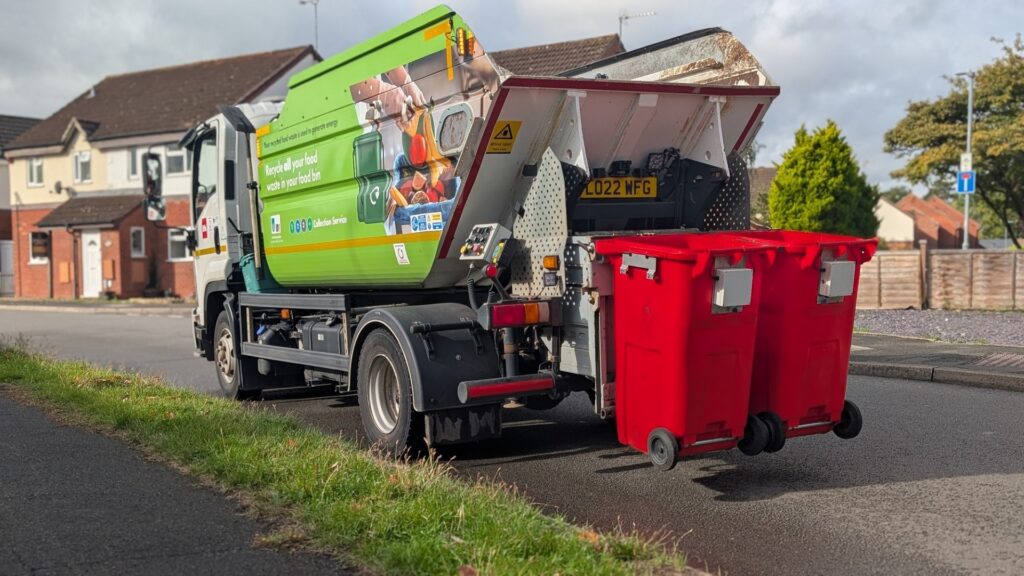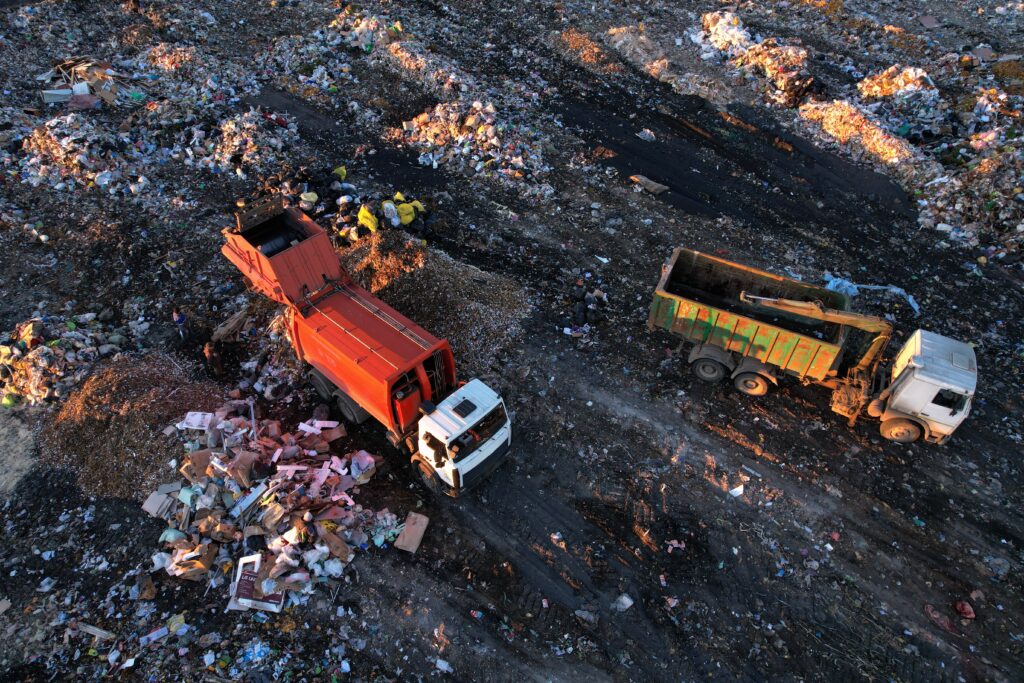The initiative, developed in partnership with technology firm Contel, is being piloted on food waste rounds in South Warwickshire.
Julie Lewis, Stratford-on-Avon District Council’s Head of Environmental and Neighbourhood Services, commented: “We welcome any innovation that provides deeper insight into how our residents engage with kerbside recycling services and the District Council is pleased to support the trial of this innovative food waste bin technology.
“Access to accurate data is key to improving recycling behaviours, enabling us to identify where support is needed and to deliver targeted education and engagement that helps residents recycle more effectively.”
Sensors attached to bins
Sensors attached to the bins record to collect real-time data when household caddies are presented for collection.
The information is then transmitted to the Contel Connected cloud platform before being securely passed to Biffa’s planning teams for analysis.
Andy Kelly, Co-CEO and Founder at Contel, explained: “The technology has been in development for nearly two years, overcoming the challenges posed by the tough everyday conditions of the waste industry.
“From extreme weather to constant vibrations and varied bin handling practices, the solution has been engineered to be both robust and resilient.”
According to Biffa, the system achieves a 99.8% accuracy rate while operating at street level rather than household level, avoiding the tracking of individual addresses.
The insights provided will allow Biffa to identify areas with strong or weak participation, enabling resources to be deployed more effectively.
This could include adjusting vehicle and crew schedules based on actual demand, as well as informing targeted campaigns to boost recycling where engagement is lower.
Initial findings
Initial findings suggest that participation in the trial areas is significantly higher than the 50% benchmark advised by WRAP.
Biffa also reported that collection crews experienced no disruption to their routines as part of the pilot.
Steve Cole, Managing Director at Biffa, said: “While currently focused on municipal food waste, the technology could be adapted for other waste streams in the future, aligning with broader sustainability and smart city initiatives.
The long-term vision is to deploy a rotating set of smart bins across waste rounds, enabling continuous data sampling.
“Local authorities will be able to procure the joint expertise of Biffa and Contel in a packaged solution to provide sampling and analysis, receiving detailed service intelligence and tailored reports to refine and evolve their service design.”
Simpler Recycling
The trial comes ahead of Simpler Recycling changes to food waste collection, which will require local authorities in England to provide the separate collection of dry recycling, food waste and residual waste in 2026.
Cole added: “Simpler Recycling will see the introduction of mandatory household food waste collections from April 2026, so it’s vital we understand service participation to help deliver better value and more sustainable solutions to our local authority clients and their residents.”
The legislation came into force in March 2025, requiring businesses with over ten full-time employees to separate these materials.
Kerbside plastic film collections from workplaces and households will be introduced by 31 March 2027.








Subscribe for free